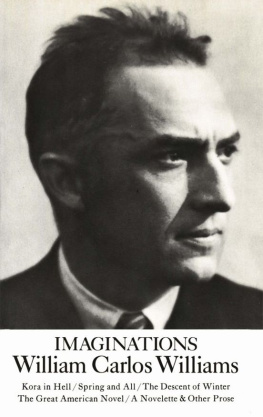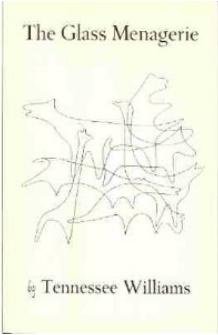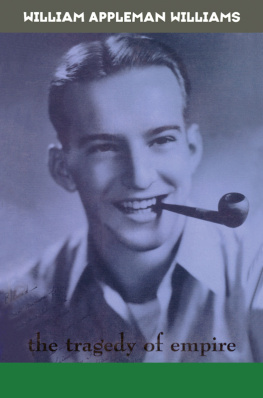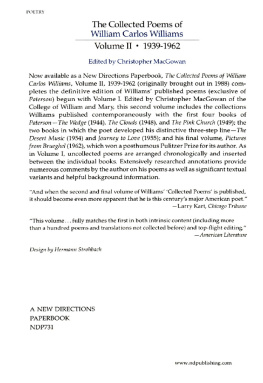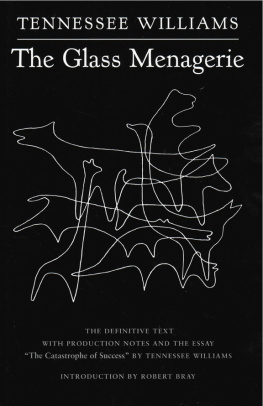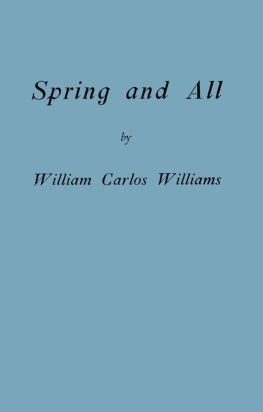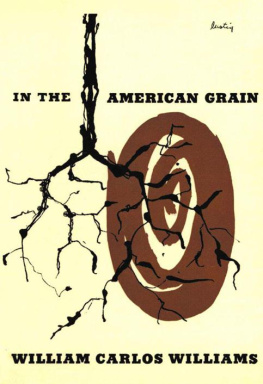WILLIAM CARLOS WILLIAMS
Imaginations
Kora in Hell
Spring and All
The Great American Novel
The Descent of Winter
A Novelette and Other Prose
edited with introductions by
Webster Schott
A NEW DIRECTIONS BOOK
Contents
Acknowledgments
Without the encouragement, help, patience of several others, this book would never have been completed. Most important were James Laughlin, Dr. Williamss friend and publisher and enthusiastic critic, and Florence Williams, Williamss remarkable wife and friend to all who value his work. Before his death Winfield Townley Scott helped me to see Williams clearer. Conrad Knickerbocker asked the right questions. Emily Mitchell Wallaces efforts in A Bibliography of William Carlos Williams made everything easier. Dee Danner Barwick typed and retyped much of the manuscript and commented intelligently. Editing the early Williams would have been drudgery without the help of Barbara Harr. Nan Schott tolerated anxiety and listened. David E. Scherman first understood what I have tried to say here about William Carlos Williams.
The introduction originally appeared, with minor changes, in The American Scholar.
W.S.
Kansas City, Mo.
Introduction
Beautiful Blood, Beautiful Brain
And approaching the end of the novel in his mind as he sat there with his wife sleeping alone in the next room he could feel that something unusual had happened. Something had grown up in his life dearer thanIt, as the end. The words from long practice had come to be leaves, trees, the comers of his housesuch was the end. He had progressed leaving the others behind him.
The Great American Novel
W ILLIAM C ARLOS W ILLIAMS forces the kinds of questions we address to natural disasters, reports of miracles and works of genius. How? Why? From what inexplicable source?
He was an American original. In his 79 years Williams led at least two lives, and at manic intensity. For some forty years he practiced medicineobstetrics and pediatricsin the small industrial town of Rutherford, New Jersey. He saw by his own account a million and a half patients and delivered 2,000 babies. This was from 1910 until 1951, before the era of doctoring by answering service and beginning the medical day with a call to the stockbroker. Williams worked like a slave at medicine. It brought him neither fortune nor special rank. Instead, it gave him and us that other life beyond value, a life of art.
While stealing time between patients, catching images and ideas between house calls, scribbling at midnight, William Carlos Williams laid the foundation of the most consequential one-man body of modern literature in American historya total of 49 books in every literary form we know and in forms we still have trouble classifying. He wrote some 600 poems, four full-length plays, an opera libretto, 52 short stories, four novels, a book of essays and criticism, his autobiography, a biography of his mother, an American history, a book of letters. He translated a medieval Spanish novel. He wrote the five-volume epic-spectacular poem Paterson over a period of three decades. Williamss most important work had been done by the time he retired from medicine in 1951. When he died 12 years later, after a series of crippling strokes, William Carlos Williams had no peer as the total American writer.
Not our time but another time will fix Williamss place in American literature. For the present he stands first among his contemporaries. If the public did not draw him to its bosom as it did the performing Robert Frost or canonize him as it did T. S. Eliot, the new young poets of his era paid him the perfect homage. They became like him. Not Ezra Pound or E. E. Cummings, but finally William Carlos Williams freed American poetry from the irons of rhyme and meter. His disciples of liberation ranged from formal poets like Winfield Townley Scott and Karl Shapiro to insurgents like Charles Olson and Robert Duncan. He was the instrument of change. Without him one cannot account for contemporary American poetry.
If Williams left tingling elegances to Wallace Stevens and academic grace to W. H. Auden, he chose larger. He seized experience and turned it into poetry hot with the blood of life. His was a found art that raised everything it touchedtrees and birds, people and dogs, water and fruit, love and flowersto a level of startled awareness. It was an art so embedded in his own personality and manner of living even Williams could never translate it into a coherent system of aesthetics readily available to others.
William Burroughs once told the critic Conrad Knickerbocker there is no such thing as will power, only need. Driving William Carlos Williams was a need for both medicine and literature that exceeded the definitions of commitment. He turned his moods into work: Periodicity of psychological and imaginative energy, he said in a notebook in 1930. Work all the timemanic depression but learn to use yourself: when up drive inwhen down assume the clerktheres plenty of room for both. He pursued both medicine and art simultaneously. Time meant nothing to me, he said in his autobiography. I might be in the middle of some flu epidemic, the phone ringing day and night, madly, not a moment free. That made no difference Five minutes, ten minutes can always be found. I had my typewriter in my office desk. All I needed to do was pull up the leaf and I was ready to go I worked at top speed. If a patient came in at the door while I was in the middle of a sentence, bang would go the machineI was a physician. When the last patient left, up would come the machine Finally, after 11 at night, when the last patient had been put to bed, I would always find the time to bang out 10 or 12 pages. In fact, I couldnt rest until I had freed my mind from the obsessions which had been tormenting me all day Having scribbled I could rest.
Medicine fired and fed the poet. Art informed the doctor: To treat a man as material for a work of art makes him somehow come alive for me. It also held him together: Most of my life has been lived in hella hell of repression lit by flashes of inspiration, when a poem such as this or that would appear. There was not only space, but absolute necessity, for both writer and physician in Williams.
Mostly we know William Carlos Williams as the titan who created Paterson, as the revolutionary miniaturist of The Red Wheelbarrow, or as the magnificent autumnal lover of Asphodel That Greeny Flower. This is the artist commanding his powers. To know the doctor searching for his art and testing it, the artist tasting life and suffering it, or to know the literary heretic rationalizing his schism and anticipating the future, we need more. We need the socially introspective journal writer of The Descent of Winter. We need the iconoclastic and privately published (usually in France) doctor-poet of such strange and troubled books as Kora in Hell, The Great American Novel, A Novelette, and Spring and All. Qualified fictions that probe the idea of fiction, not wholly poetry but set with the jewels of poetry, they are William Carlos Williamss books of primary belief. They are also crisis books. Crisis books because they show Williams immediately after his first poems, barely known and desperately struggling to erect a platform of ideas from which he could make sense to himself and whoever would read him. They show him breaking through a thicket of words and emotions to a belief in his own worth that was never shaken. A belief that poured the concrete of Paterson and gave Williams his heirs.
These are difficult books, these four, and not to be wished onto desert minds. They churn with giant ideas and powerful feelings, often pursued with the fragile butterfly net of intuition. There are no narrative lines except those in Williamss head. No conventions except those Williams invented as he went along. No genuflections to formality or propriety. Williams had no time and less taste for that. He was writing these books in search of a faith, not an audience. From 300 to 1,000 copies of each were printed. Fewer were sold. The radical present and the revolutionary future were Williamss goal, not an invitation into the lace-curtained living room of America. Ill write whatever I damn please, he said in his preface to

